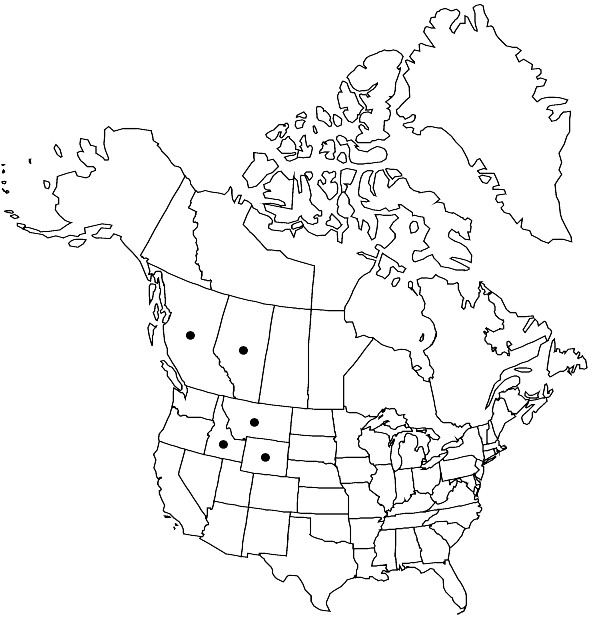Difference between revisions of "Encalypta spathulata"
Syn. Musc. Frond. 1: 519. 1849,.
FNA>Volume Importer |
imported>Volume Importer |
||
| Line 41: | Line 41: | ||
|publication year= | |publication year= | ||
|special status= | |special status= | ||
| − | |source xml=https:// | + | |source xml=https://bibilujan@bitbucket.org/aafc-mbb/fna-data-curation.git/src/bb6b7e3a7de7d3b7888a1ad48c7fd8f5c722d8d6/coarse_grained_fna_xml/V27/V27_232.xml |
|genus=Encalypta | |genus=Encalypta | ||
|species=Encalypta spathulata | |species=Encalypta spathulata | ||
Revision as of 23:31, 27 May 2020
Stems to 10 mm, central strand weakly differentiated, cells very thin-walled. Leaves oblong to lingulate or ligulate, 1.5–3 mm, apices obtuse to broadly acute, hair-pointed, margins plane, weakly bordered; costa excurrent, awns shorter than leaf lamina, smooth, narrow; laminal cells 12–18 µm; basal cells rectangular, 30–70 µm, smooth; basal marginal cells weakly differentiated, in 12–18 rows, longer than laminal cells. Specialized asexual reproduction absent. Seta 3–8 mm, dark red. Capsule short-cylindric, 1–2 mm, weakly striate to ribbed, gymnostomous, yellowish brown, exothecial cells rectangular to linear, walls thickened; peristome absent; operculum 0.5 mm. Calyptra 2–4 mm, lacerate at base, smooth. Spores 26–35 µm, warty, brown.
Habitat: Forming extensive mats on calcareous soils of disturbed sites
Distribution

Alta., B.C., Idaho, Mont., Wyo., Europe, c Asia.
Discussion
Encalypta spathulata is very similar to E. rhaptocarpa but differs in the fringed calyptra base and weakly striate, eperistomate capsule. The gymnostomous capsules and long awn will separate E. spathulata from other species of the genus.
Selected References
None.